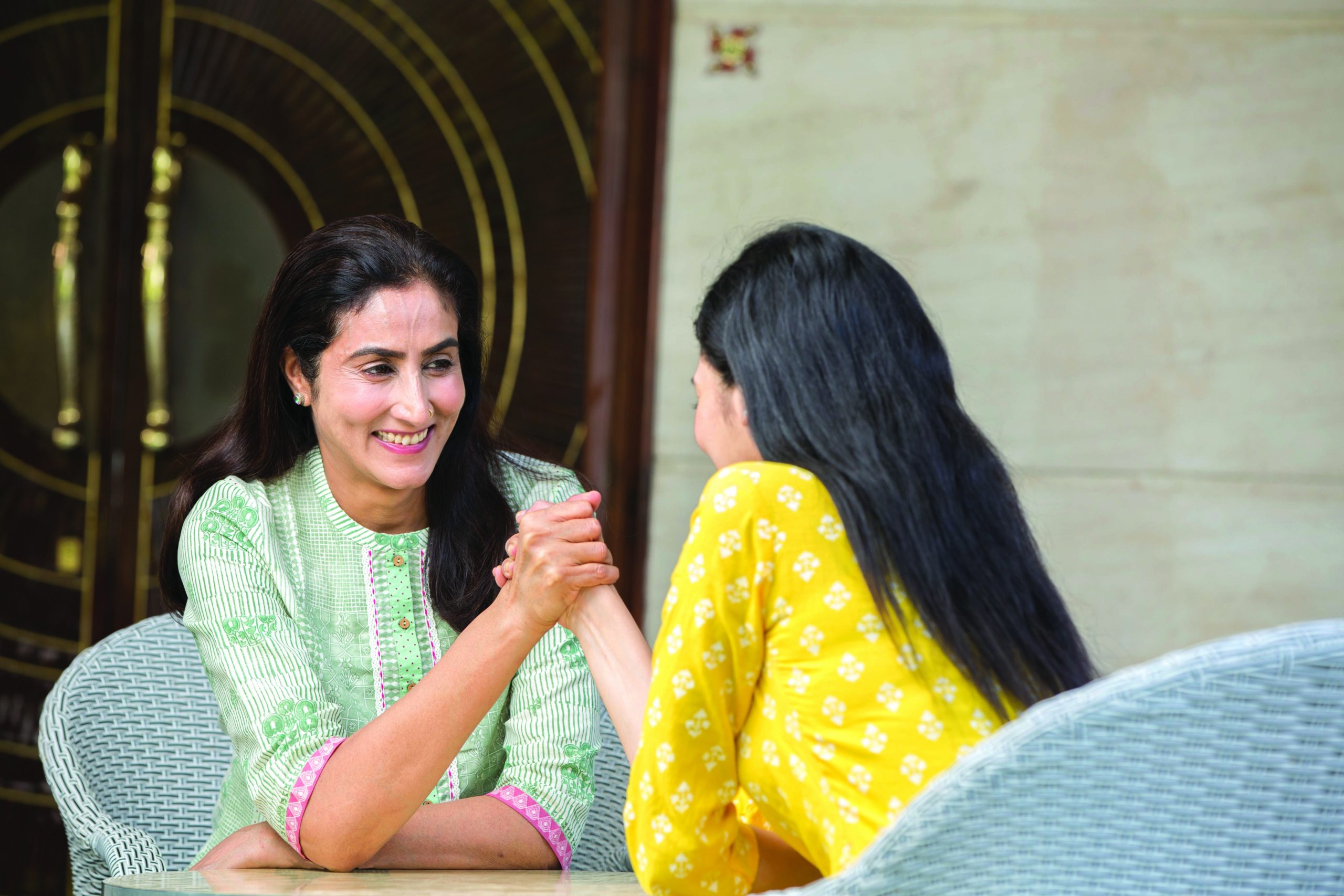No products in the cart.
Protecting tweens from sexual abuse
Parents need to take special care to guide, educate and protect tweens from sexual abuse and cyber bullying, write Shubhashree Karmakar & Veena Joshi

The ‘tween’ or ‘pre-teen’ phase is a bittersweet transitional period for children as they prepare to transition from childhood to adolescence. During this period they struggle to cope with onset of puberty-related physical, emotional and cognitive changes while beginning to assert their independence by resisting parental authority, and often indulging in risky behaviour. It is a vulnerable phase during which they are susceptible to sexual abuse. Parents need to take special care to guide, educate and protect tweens from sexual abuse, cyber bullying and other types of abuse. Some guidelines to aid, enable and protect tweens.
Balance child safety & independence
Pre-teens want to assert their independence, they are rebellious and temperamental, and want unrestricted peer interaction. Simultaneously they are becoming aware of puberty-related physical changes and discovering their sexuality. This is a crucial phase during which parents need to tread carefully by striking the right balance between allowing them the freedom to make their own decisions and ensuring children’s safety. The best way to strike this balance:
Encourage two-way communication and lend a patient ear to your child’s problems. Take care not to be preachy and judgemental.
If you’re curious about your tween’s personal life, don’t question her directly and abrasively. Listen and connect with her through short conversations and enjoyable activities. Strengthen your bonds.
Warm and empathetic responses to queries helps tweens feel safe and protected.
Support them in decision-making. Discuss pros and cons of a problem and help them to make safe decisions.
Discuss child sexual abuse
It is normal for parents to feel uncomfortable when discussing child sexual abuse (CSA). But remember, you are their best teacher and guide.
Encourage open, honest conversations with tweens about personal safety and likely CSA situations. But before you discuss CSA, you need to be well-informed on the topic, and learn to use child-appropriate vocabulary and language. This is imperative for parents intent upon shedding CSA discomfort. In most cases children are hesitant to discuss sexuality and related matters because they can sense parental discomfort on this subject.
Parents can also seek help beyond the family, from paediatricians, gynaecologists and/or counsellors. Ask them to reiterate the importance of personal safety to children.
Visit websites such as Arpan’s e-learn website or of any other NGO educating children about personal safety and CSA.
Utilize teaching opportunities that arise when children ask questions about sex or when there is a news report/movie about CSA.
Teach children about unsafe touching and situations. Empower them to refuse assertively and call/scream for help.
Child sexual abuse impact
Sexual abuse deeply impacts the lives of children physiologically, psychologically and socially. Some of the physical consequences include pregnancy, psycho-somatic illnesses, repeated urinary infection and sexually transmitted diseases. Psychological impact manifests by way of irrational fear of strangers, nightmares, lassitude, eating and sleeping disorders. Social impact manifests by way of sudden withdrawal, over-pleasing behaviour, increased hostility and visible changes in sexual conduct.
It’s important to highlight that CSA victims with strong parental support prior to abuse, record reduced impact and recover quickly.
Online safety
Dangers and threats lurking in cyberspace are numerous. They range from cyber bullying, exposure to online pornography to grooming i.e, targeting children online for sexual purposes and abuse. Parents need to educate children about different forms of online abuse from early age. Here are some simple ways to protect tweens from online abuse:
• Set mutually agreed guidelines on internet usage. Monitor children’s online viewing without being intrusive.
• Encourage them to inform you if they are befriended by strangers.
• Set strong privacy settings on all social media and gaming websites.
• Don’t share address or geographical location while posting photos or videos.
• Warn children against accepting friends and follow requests from strangers.
• Be careful of how much private and personal information you share about your children on social media. It can be misused.
(Shubashree Karmakar is senior manager and Veena Joshi is manager, Arpan, a Mumbai-based award-winning NGO working in the area of child sexual abuse. www.arpanelearn.com)














Add comment